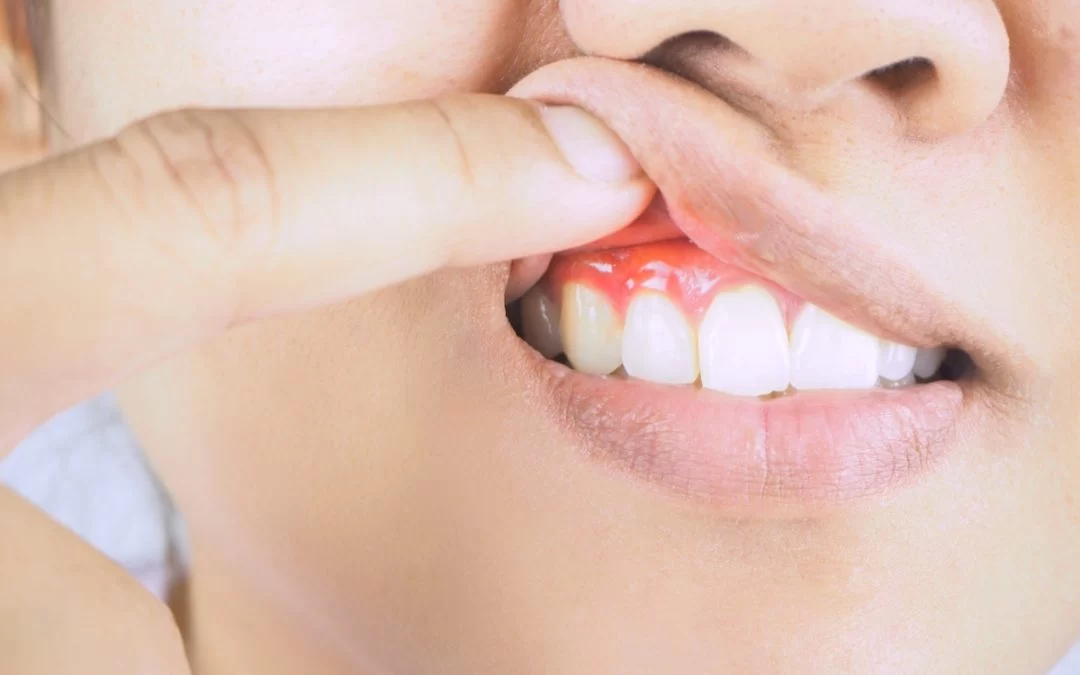
How to Prevent Gum Disease with Better Oral Care: Essential Tips for Healthy Gums
- 1. Why Gum Disease Happens
- 2. Key Tips to Prevent Gum Disease
- 3. Building a Better Oral Care Routine
- 4. Real-Life Stories: How Better Oral Care Prevented Gum Disease
- 5. Conclusion: Start Preventing Gum Disease Today
1. Why Gum Disease Happens
Gum disease, also known as periodontal disease, is an infection of the tissues that surround and support your teeth. It begins with plaque buildup—a sticky film of bacteria that forms on your teeth. If left unchecked, plaque hardens into tartar, which can lead to inflammation and infection in the gums.
Many people don’t realize that gum disease starts subtly, often with symptoms like swollen or bleeding gums. If ignored, it can progress to more severe stages, resulting in tooth loss. Factors like poor oral hygiene, smoking, genetics, and certain medical conditions can increase your risk, which is why it’s essential to address the problem early.
2. Key Tips to Prevent Gum Disease
Preventing gum disease requires consistent oral care habits. Here are some of the most effective tips to help keep your gums healthy:
Brush Your Teeth Properly
Brushing your teeth is the first line of defense against plaque buildup. Use a soft-bristled toothbrush and fluoride toothpaste, and brush at least twice a day for two minutes. Don’t forget to brush along the gumline, where plaque tends to accumulate. An electric toothbrush can be particularly effective in thoroughly cleaning your teeth and gums.
Floss Daily
Flossing is just as important as brushing. It helps remove plaque and food particles from between your teeth, areas that your toothbrush can’t reach. Flossing at least once a day can significantly reduce the risk of gum disease.
Use Mouthwash
A mouthwash containing antibacterial properties can help reduce plaque and kill harmful bacteria. It also helps to freshen your breath and protect your gums. Choose a mouthwash that is alcohol-free and designed for gum health.
Regular Dental Checkups
Even with a perfect oral care routine, it’s essential to visit your dentist regularly for professional cleanings and checkups. Your dentist can detect early signs of gum disease and provide treatment before it becomes more serious.
3. Building a Better Oral Care Routine
While brushing and flossing are crucial, maintaining an overall healthy lifestyle can also play a significant role in preventing gum disease. Here’s how to build a more effective oral care routine:
Diet and Nutrition
A balanced diet rich in vitamins and minerals is essential for maintaining healthy gums. Vitamin C, in particular, is vital for gum health, as it helps prevent inflammation and promotes healing. Reducing your sugar intake can also prevent plaque buildup, as sugar feeds the bacteria that cause gum disease.
Avoid Tobacco
Smoking is a major risk factor for gum disease, as it weakens your immune system and makes it harder for your gums to heal. If you smoke, consider quitting to improve both your overall health and your gum health.
Manage Stress
Stress can negatively impact your oral health by weakening your immune system and contributing to inflammation. Practicing relaxation techniques like meditation, exercise, or yoga can help reduce stress and support your gum health.
4. Real-Life Stories: How Better Oral Care Prevented Gum Disease
Many individuals have turned their gum health around by adopting better oral care habits. Take the story of Tom, a 45-year-old who struggled with bleeding gums for years. After switching to an electric toothbrush, flossing daily, and using an antibacterial mouthwash, Tom noticed a significant reduction in gum inflammation. "I was shocked at how quickly things improved. My dentist said my gums looked so much healthier!"
Another example is Anna, a 60-year-old who had been battling gum disease for several months. After regular dental visits, following a solid oral hygiene routine, and improving her diet, Anna reversed the early signs of gum disease. "It wasn’t easy, but I’m so glad I took my dentist’s advice seriously. I feel much more confident about my oral health now," she shared.
5. Conclusion: Start Preventing Gum Disease Today
Preventing gum disease is not just about brushing and flossing—it's about maintaining a holistic approach to oral care. By making small changes to your routine, like using the right tools, improving your diet, and avoiding harmful habits, you can significantly reduce your risk of gum disease.
If you’re looking for reliable oral care products to help you protect your gums, visit Dentistry Toothtruth. Explore a range of high-quality products designed to keep your gums and teeth in excellent condition. Learn more and take the first step towards healthier gums today!







 Dr. Krupa Parikh, DDS0.0 (0 review)
Dr. Krupa Parikh, DDS0.0 (0 review) Libertyville Dental Associates5.0 (329 review)
Libertyville Dental Associates5.0 (329 review) Dr. Shaifali Rametra, DDS / MS / MBA / MOLAR TO MOLAR DENTISTRY3.0 (26 review)
Dr. Shaifali Rametra, DDS / MS / MBA / MOLAR TO MOLAR DENTISTRY3.0 (26 review) Scott Soderquist, DDS, MS0.0 (0 review)
Scott Soderquist, DDS, MS0.0 (0 review) Lifetime Family Dental PLLC0.0 (0 review)
Lifetime Family Dental PLLC0.0 (0 review) Pequannock Valley Dental Associates4.0 (473 review)
Pequannock Valley Dental Associates4.0 (473 review) The Importance of Oral Health Education During Pregnancy for a Healthy Pregnancy
The Importance of Oral Health Education During Pregnancy for a Healthy Pregnancy Best Tips for Brushing Your Teeth Properly for Healthy Gums: Essential Techniques for Oral Health
Best Tips for Brushing Your Teeth Properly for Healthy Gums: Essential Techniques for Oral Health Why Skipping Dental Checkups Can Lead to Bigger Oral Health Problems
Why Skipping Dental Checkups Can Lead to Bigger Oral Health Problems Advantages of Porcelain Dental Restorations
Advantages of Porcelain Dental Restorations How Can Diabetes Cause Tooth and Gum Problems? Preventing and Managing Oral Health Issues
How Can Diabetes Cause Tooth and Gum Problems? Preventing and Managing Oral Health Issues Healthy Habits for Promoting Good Oral Health and Hygiene: Tips for a Healthy Smile
Healthy Habits for Promoting Good Oral Health and Hygiene: Tips for a Healthy Smile